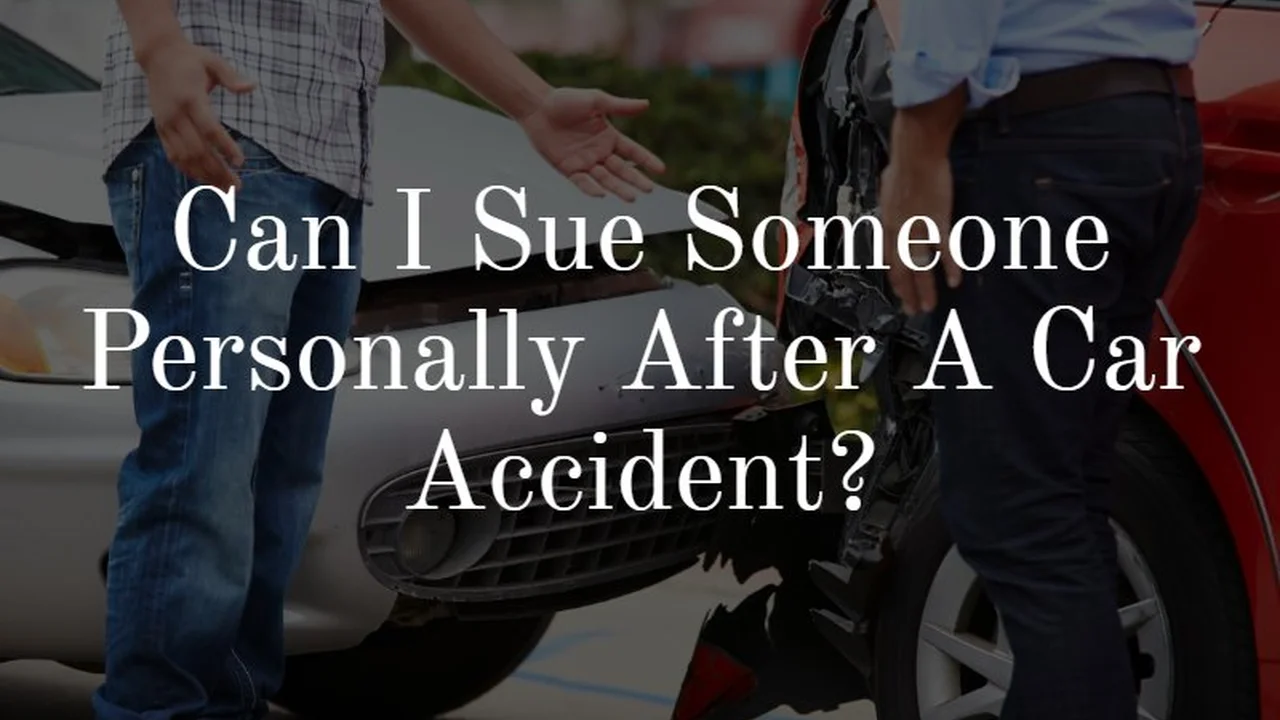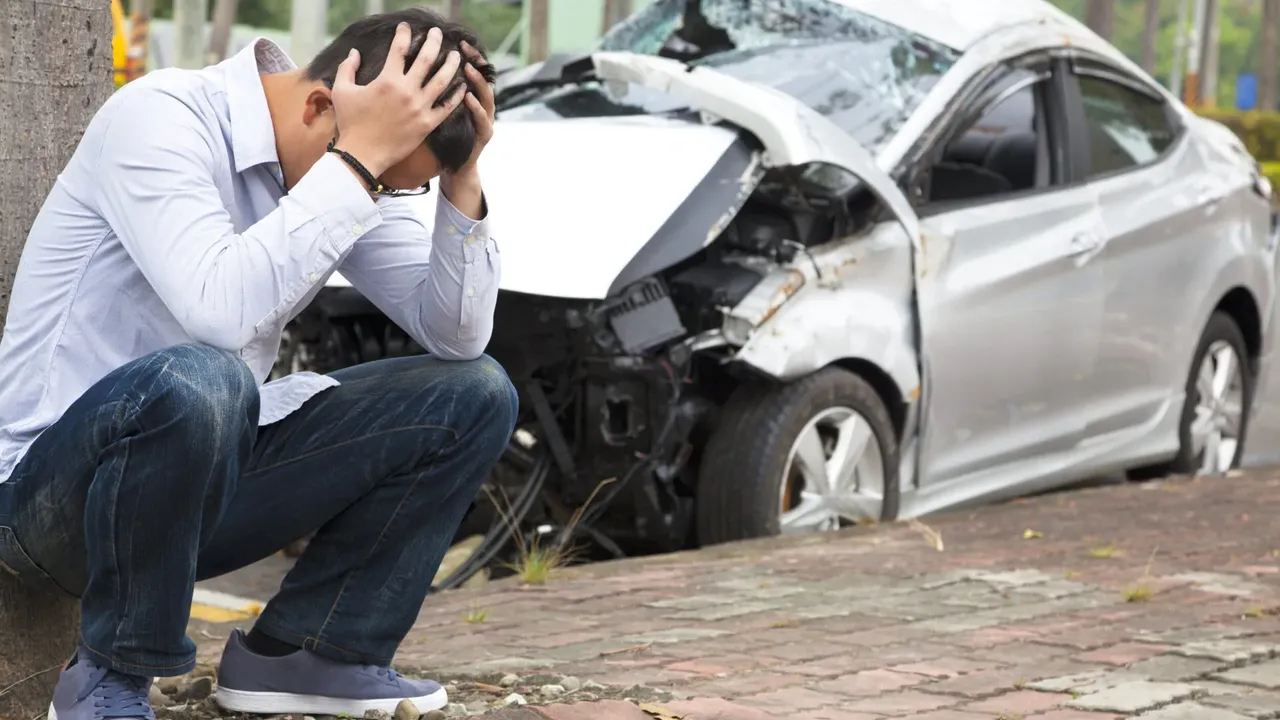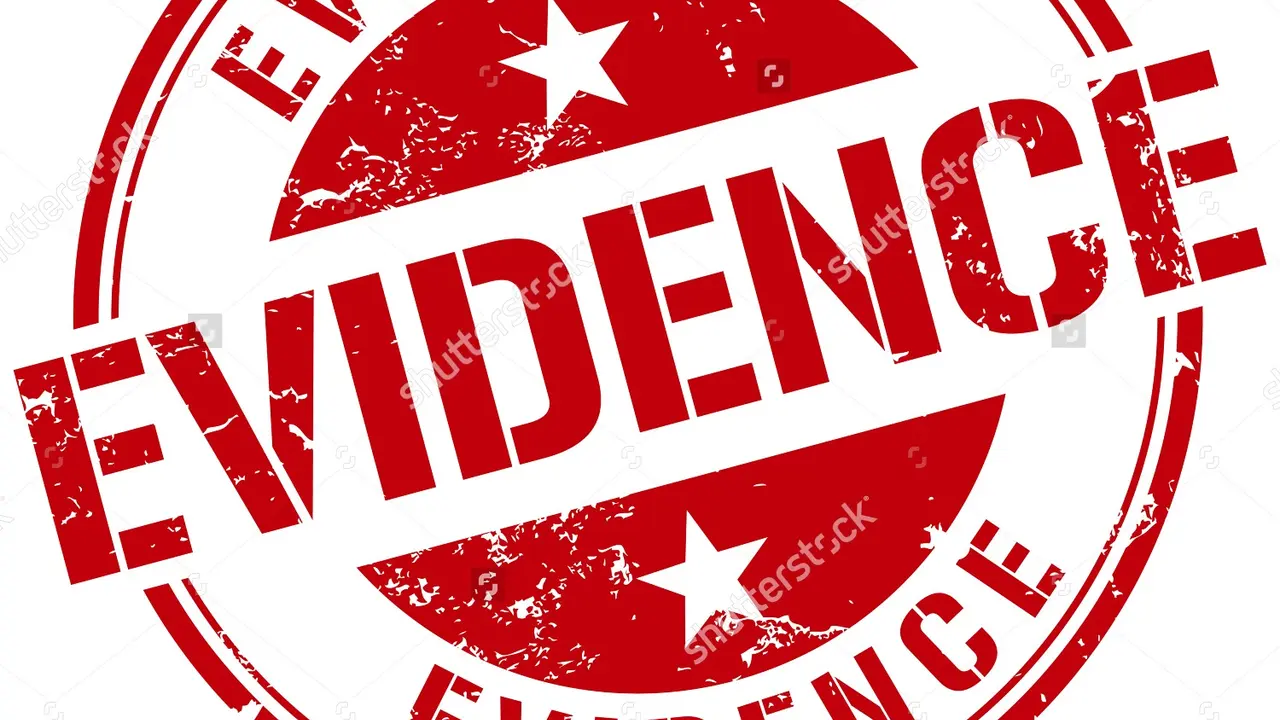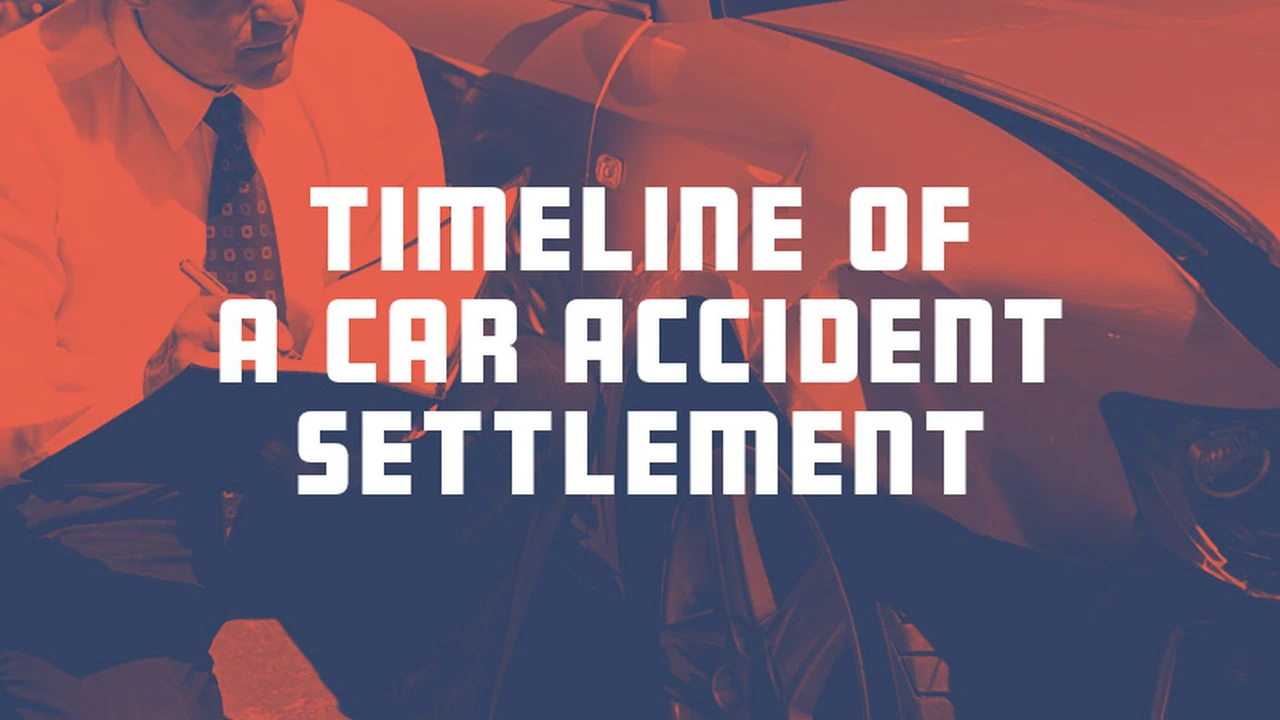FAQ: Can I Sue the Other Driver After a Car Accident?

Understanding Your Rights After a Car Accident Injury Claim
So, you've been in a car accident. It's a stressful time, no doubt. You're probably dealing with injuries, damaged property, and a whole lot of paperwork. One of the first questions that pops into your head is likely, "Can I sue the other driver?" The short answer is, it depends. Let's dive into the nitty-gritty of when you can, should, and maybe shouldn't consider taking legal action.
First, let's be clear: suing someone is a big deal. It's not something you should jump into without a good reason and a solid understanding of the legal landscape. We're going to break down the key factors that determine whether you have a viable case and what you need to consider before filing a lawsuit.
When is Suing the Other Driver a Good Idea? - Car Accident Lawsuit Considerations
There are several scenarios where suing the other driver is a legitimate and often necessary course of action. Here are a few key indicators that you might have a strong case:
- Serious Injuries: This is the big one. If you've suffered significant injuries – broken bones, spinal cord damage, traumatic brain injury, or anything that requires extensive medical treatment and rehabilitation – a lawsuit might be necessary to cover your costs.
- Permanent Disability: If the accident has left you with a permanent disability that prevents you from working or enjoying life as you did before, you'll need compensation to cover your lost income and ongoing care.
- High Medical Bills: Even if your injuries aren't considered "serious," if your medical bills are piling up and exceeding your insurance coverage, a lawsuit might be the only way to recover those costs.
- Lost Wages: If you've been unable to work due to your injuries, you're losing income. A lawsuit can help you recover those lost wages, both past and future.
- Disputed Liability: Sometimes, the other driver's insurance company will deny your claim or argue that you were partially at fault for the accident. If you believe you were not at fault, a lawsuit can help you establish liability and recover damages.
- Insurance Policy Limits: The at-fault driver's insurance policy might not be enough to cover all of your damages. In this case, you might need to sue the driver personally to recover the full amount you're owed.
Proving Negligence: The Key to Winning Your Car Accident Case
To win a car accident lawsuit, you need to prove that the other driver was negligent. Negligence essentially means that they failed to exercise reasonable care while driving, and that failure caused your injuries. Here's what you need to demonstrate:
- Duty of Care: The other driver had a duty to operate their vehicle safely and follow traffic laws.
- Breach of Duty: The other driver violated that duty by doing something careless, such as speeding, running a red light, or driving under the influence.
- Causation: The other driver's negligence directly caused the accident and your injuries.
- Damages: You suffered actual damages as a result of the accident, such as medical bills, lost wages, and property damage.
Evidence is crucial in proving negligence. This can include police reports, witness statements, photos of the accident scene, medical records, and expert testimony.
What Kind of Damages Can You Recover in a Car Accident Lawsuit? - Car Accident Compensation Breakdown
If you win your car accident lawsuit, you can recover several types of damages, including:
- Medical Expenses: Past and future medical bills, including doctor visits, hospital stays, physical therapy, and medication.
- Lost Wages: Past and future lost income due to your inability to work.
- Property Damage: The cost to repair or replace your damaged vehicle.
- Pain and Suffering: Compensation for the physical and emotional pain you've endured as a result of your injuries. This can be difficult to quantify, but it's a significant component of many car accident settlements.
- Punitive Damages: In some cases, if the other driver's conduct was particularly egregious (e.g., drunk driving or reckless behavior), you might be able to recover punitive damages, which are designed to punish the driver and deter similar behavior in the future.
Navigating the Legal Process: What to Expect When Suing After a Car Accident - Car Accident Claim Process
Filing a lawsuit can seem daunting, but here's a general overview of the process:
- Consult with an Attorney: The first step is to talk to a qualified personal injury attorney who specializes in car accident cases. They can evaluate your case, advise you on your legal options, and help you navigate the legal process.
- File a Complaint: Your attorney will file a formal complaint with the court, outlining the facts of the accident and the damages you're seeking.
- Serve the Defendant: The other driver (the defendant) must be formally notified of the lawsuit.
- Discovery: This is the process of gathering evidence. Your attorney will request documents from the other driver, take depositions (sworn testimony), and possibly hire experts to investigate the accident.
- Mediation or Settlement Negotiations: Many car accident cases are resolved through mediation or settlement negotiations. This involves working with the other driver's insurance company to reach a mutually agreeable settlement.
- Trial: If you can't reach a settlement, your case will go to trial. At trial, you'll present evidence to a judge or jury, who will decide whether the other driver was negligent and how much compensation you're entitled to.
Alternatives to Suing: Exploring Your Options After a Car Accident - Car Accident Settlement Options
Suing is not always the best option. There are other ways to resolve your car accident claim, such as:
- Negotiating with the Insurance Company: You can try to negotiate a settlement directly with the other driver's insurance company. However, insurance companies are often motivated to minimize payouts, so it's usually best to have an attorney represent you in these negotiations.
- Mediation: Mediation involves working with a neutral third party to reach a settlement. The mediator helps facilitate communication between you and the insurance company and tries to find common ground.
- Arbitration: Arbitration is similar to mediation, but the arbitrator has the power to make a binding decision. This can be a faster and less expensive alternative to going to trial.
When Not to Sue: Weighing the Risks and Benefits of a Car Accident Lawsuit - Car Accident Litigation Considerations
While suing can be a viable option, it's important to weigh the risks and benefits. Here are some situations where suing might not be the best course of action:
- Minor Injuries: If your injuries are minor and your medical bills are relatively low, the cost of pursuing a lawsuit might outweigh the potential benefits.
- Clear Fault: If you were clearly at fault for the accident, you're unlikely to win a lawsuit.
- Limited Insurance Coverage: If the other driver has minimal insurance coverage and no significant assets, it might not be worth pursuing a lawsuit, as you might not be able to recover much money even if you win.
- High Legal Costs: Lawsuits can be expensive, especially if they go to trial. You need to consider whether you can afford the legal fees and costs associated with pursuing a lawsuit.
Uninsured and Underinsured Motorist Coverage: Your Safety Net - Car Insurance Options
What happens if the other driver doesn't have insurance or doesn't have enough insurance to cover your damages? That's where uninsured and underinsured motorist coverage comes in. This type of coverage protects you if you're injured by an uninsured or underinsured driver. It can cover your medical bills, lost wages, and pain and suffering, up to the limits of your policy.
It's essential to have adequate uninsured and underinsured motorist coverage to protect yourself in case you're involved in an accident with a driver who doesn't have sufficient insurance.
Product Recommendations for Car Accident Recovery and Safety - Car Safety Products
Recovering from a car accident can be a long and challenging process. Here are a few products that can help you stay safe on the road and aid in your recovery:
1. Dash Cam: Vantrue N4 3 Channel 4K Dash Cam - Car Accident Evidence Recorder
Description: This dash cam records in 4K resolution and has three channels, capturing footage from the front, rear, and interior of your car. It's a great way to document what happens on the road and provide evidence in case of an accident.
Use Case: Provides irrefutable evidence in the event of an accident, protecting you from false claims and ensuring accurate reporting. The interior camera can also be useful for rideshare drivers.
Comparison: Compared to the Garmin Dash Cam Mini 2, the Vantrue N4 offers superior video quality and multi-channel recording. The Garmin is smaller and more discreet but lacks the same level of detail and comprehensive coverage.
Price: Approximately $250 - $300.
2. First Aid Kit: First Aid Only All-Purpose First Aid Kit - Emergency Medical Supplies
Description: A comprehensive first aid kit containing essential supplies for treating minor injuries, such as cuts, scrapes, and burns.
Use Case: Provides immediate treatment for minor injuries at the accident scene. Essential for both personal use and preparedness.
Comparison: The First Aid Only kit is a solid all-around choice compared to smaller, more basic kits. While compact kits are more portable, they often lack essential items like antiseptic wipes and pain relievers.
Price: Approximately $20 - $30.
3. Back Support Cushion: ComfiLife Gel Enhanced Seat Cushion - Post-Accident Comfort
Description: A gel-enhanced seat cushion designed to provide support and comfort for your back and tailbone. Useful for those experiencing back pain after a car accident.
Use Case: Reduces pressure on the tailbone and provides support for the lower back, alleviating pain and discomfort while driving or sitting for extended periods.
Comparison: Compared to memory foam cushions, gel-enhanced cushions offer better support and breathability. Memory foam can trap heat and become uncomfortable over time.
Price: Approximately $30 - $40.
4. Neck Brace: Aspen Vista Cervical Collar - Neck Injury Support
Description: A neck brace designed to provide support and immobilization for the neck following a whiplash injury or other neck trauma.
Use Case: Stabilizes the neck, reducing pain and promoting healing after a car accident. Should only be used under the guidance of a medical professional.
Comparison: Compared to soft cervical collars, the Aspen Vista offers more rigid support and immobilization, making it suitable for more severe neck injuries. Soft collars provide minimal support and are typically used for minor strains.
Price: Approximately $50 - $70 (prescription may be required).
5. Mobile Phone Mount: iOttie Easy One Touch 5 - Safe Driving Accessory
Description: A secure and adjustable phone mount for your car, allowing you to use your phone for navigation and hands-free calling without taking your eyes off the road.
Use Case: Promotes safe driving by keeping your phone within easy reach and view, reducing distractions and the risk of accidents.
Comparison: Compared to magnetic mounts, the iOttie Easy One Touch 5 provides a more secure grip on your phone, preventing it from falling during sudden stops or turns. Magnetic mounts can be unreliable, especially with larger phones.
Price: Approximately $25 - $35.
The Importance of Seeking Legal Advice - Car Accident Attorney Consultation
Navigating the aftermath of a car accident can be overwhelming. It's always best to consult with a qualified personal injury attorney who can evaluate your case, advise you on your legal options, and help you protect your rights. Don't hesitate to seek legal advice, even if you're unsure whether you have a viable case. A good attorney can provide valuable guidance and support during this difficult time.
:max_bytes(150000):strip_icc()/277019-baked-pork-chops-with-cream-of-mushroom-soup-DDMFS-beauty-4x3-BG-7505-5762b731cf30447d9cbbbbbf387beafa.jpg)






.webp)